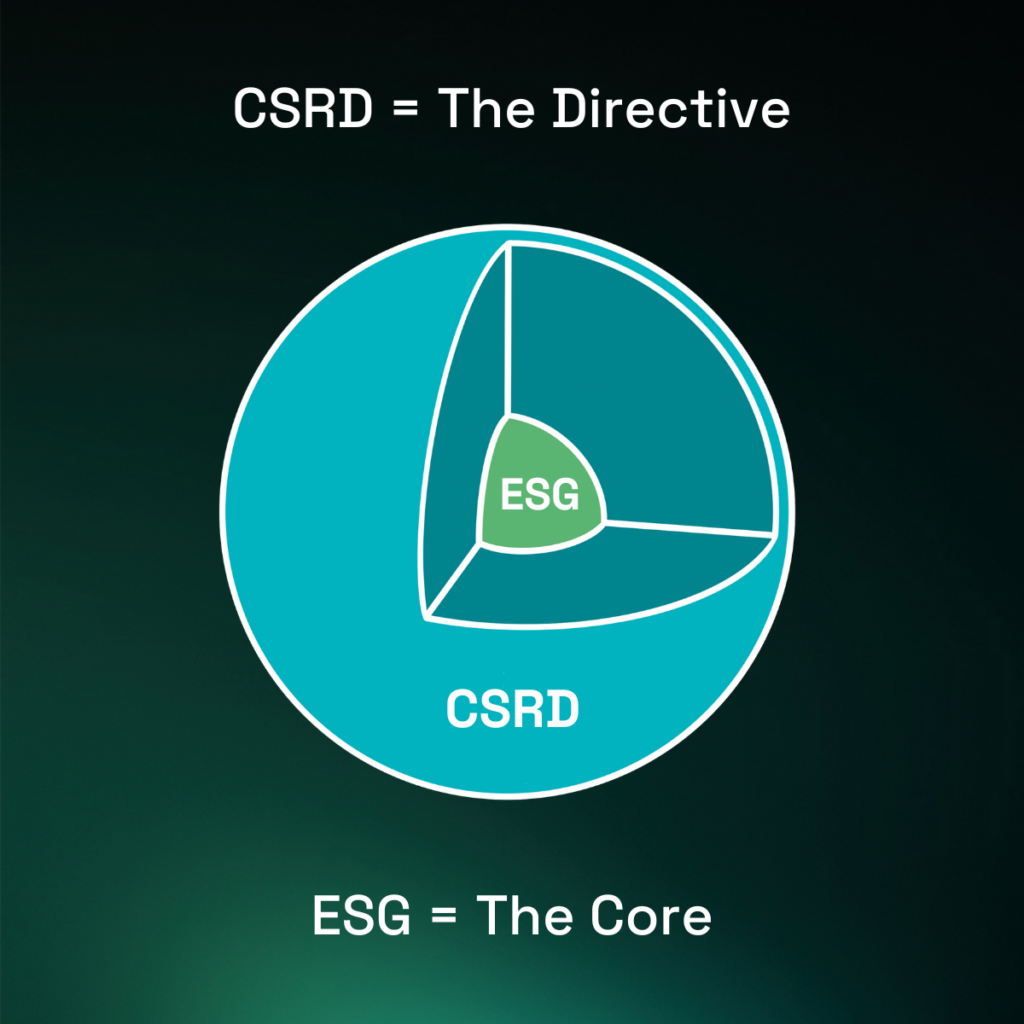Community
osapeers.org
This article is available in
About this article

Di Liao
AuthorSustainability is becoming a global priority—not only for society but for businesses as well. Amidst climate change, resource shortages, and increasing social inequality, companies are now expected to assume greater environmental and social responsibility. A 2020 Capgemini Research Institute study found that 79% of consumers expect companies to operate sustainably and adjust their purchasing decisions based on these values. Investors are also focusing more on ESG criteria, and the public demands transparency and sustainable business practices. Companies that meet these expectations enjoy reputational gains and secure their long-term competitiveness.
To address these demands, the European Union has introduced the Corporate Sustainability Reporting Directive (CSRD), setting new standards for sustainability reporting. Under this directive, companies must report extensively on their environmental, social, and governance (ESG) practices. The aim: to equip investors and other stakeholders with reliable, comparable data for informed decision-making.
CSRD replaces the previous Non-Financial Reporting Directive (NFRD), expanding the topics that are reported on, underscoring the EU’s leadership in combating climate change and fostering a sustainable economy.
With the expanded reporting requirements under CSRD, many companies are now questioning if they fall within its scope. The new directive mandates sustainability reporting for a much larger range of companies. While large corporations remain the main focus, mid-sized firms will also be subject to reporting requirements. Currently, the regulation affects publicly traded companies. However, starting January 2025, it will apply to companies that meet at least two of the following criteria:
In the coming years, the scope will broaden further, potentially impacting small and medium-sized enterprises (SMEs) by 2026. Altogether, these new requirements will apply to about 50,000 companies across the EU.
International companies should also take note: even if headquartered outside the EU, subsidiaries and branches within the EU may be subject to these regulations. By 2028, non-EU companies generating more than €150 million in net sales within the EU will also need to submit sustainability reports in compliance with CSRD standards. CSRD sends a clear signal that sustainability reporting is now a mainstream expectation for businesses both within and beyond the EU.
With the CSRD, both the number of affected companies and the content requirements for sustainability reports have expanded considerably compared to NFRD. Going forward, companies will need to provide more comprehensive and detailed information on their sustainability practices, with a strong emphasis on ESG criteria.

One primary goal of CSRD is to ensure that corporate reports are comparable and reliable. To achieve this, companies must align their reporting with the new European Sustainability Reporting Standards (ESRS), which provide consistent and precise guidelines. These standards cover all key aspects of ESG, from climate risks and environmental impact to social issues like employee rights and corporate social responsibility.
The ESG topics on which a company is ultimately required to report depend on the so-called double materiality assessment, which assesses the sustainability issues that are relevant both financially (financial materiality) and in terms of their environmental and social impact (impact materiality).
These detailed requirements often necessitate substantial adjustments to companies’ reporting processes. While NFRD allowed for more flexibility, CSRD requires a structured, data-driven approach, which may involve investments in new technologies and staff training.
Although the new CSRD reporting obligations might initially seem burdensome, companies should also view the directive as an opportunity. It allows them to communicate their sustainability strategies clearly and position themselves as responsible organizations. Companies that act proactively and integrate sustainability into their business strategies can benefit from enhanced customer trust, stronger employee retention, and, ultimately, improved financial outcomes.
In addition, CSRD requirements often prompt companies to refine internal processes and data management, leading to greater efficiency and better decision-making over time. Companies that view CSRD as a strategic opportunity can strengthen their market position in an increasingly sustainability-conscious environment.
The volume and complexity of required data—from ESG metrics to Double Materiality Analysis (DMA)—pose significant challenges for many companies. Manual processes or simple spreadsheets are no longer sufficient to meet the new requirements. Consequently, CSRD standards necessitate both organizational adjustments and advanced technology to ensure efficient and accurate reporting.
Innovative digital solutions and specialized software platforms provide essential support. With modern tools, companies can centralize, analyze, and compile data into reports that align with CSRD requirements. These technologies make sustainability reporting more efficient and enable companies to automate the reporting process, ensuring transparency for stakeholders.
The osapiens HUB for CSRD is a software solution that enables companies to capture, analyze, and consolidate all relevant ESG data in one place. Through seamless integration and automation of reporting processes, companies can ensure their sustainability reports are compliant, transparent, and easily traceable.
The osapiens HUB offers a “Single Source of Truth” platform solution, not only addressing CSRD but also other regulatory requirements like the EUDR (EU Deforestation Regulation) and supply chain due diligence through the EU-wide CSDDD (Corporate Sustainability Due Diligence Directive). This integration allows companies to manage multiple compliance requirements centrally, optimizing processes and conserving resources. The structure of the osapiens HUB supports efficient data consolidation and reuse, reducing duplication and enhancing transparency across all reporting requirements.